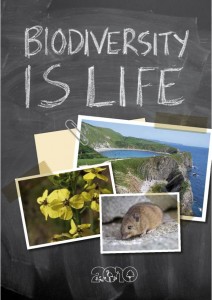

Global Citizenship blog
 A new approach to consulting with pupils about education and their learning was taken today by Perth and Kinross Council as it held its first Pupil Council Conference. One hundred and twenty children, who are members of primary school pupil councils, and fifty of their teachers came together at Perth Concert Hall for the special event. The morning session was hosted by School Councils UK, who are providing Pupil Council training for staff and children. And the afternoon sessions featured a range of workshops focused on themes such as transition from primary to secondary, Global Citizenship, and Eco-Schools. The views of these young people will inform future planning by the Council.
A new approach to consulting with pupils about education and their learning was taken today by Perth and Kinross Council as it held its first Pupil Council Conference. One hundred and twenty children, who are members of primary school pupil councils, and fifty of their teachers came together at Perth Concert Hall for the special event. The morning session was hosted by School Councils UK, who are providing Pupil Council training for staff and children. And the afternoon sessions featured a range of workshops focused on themes such as transition from primary to secondary, Global Citizenship, and Eco-Schools. The views of these young people will inform future planning by the Council.
A number of the Rights enshrined in the United Nations Convention on the Rights of the Child (UNCRC) relate to communication by and with young people and the requirement that adults take children’s views into account when making decisions that affect them.
LTS Online has published a new UNCRC resource which introduces teachers to the UNCRC and explains how it affects Scottish children and young people.
MoreMike Russell, Cabinet Secretary for Education and Lifelong Learning, has just returned from visits to Sweden and Finland to examine aspects of their education systems. A Scottish Government news story provides a summary.
The Cabinet Secretary added thoughts to his blog as the visit proceeded, which gives a personal dimension.
A Times Educational Supplement Scotland story ‘Russell talks up Swedish system’ added another perspective. And another TESS piece, ‘Meeting Sweden’s freedom fighters’, describes the experience of two Swedish mothers who started a new school with state funding through education reform legislation. The success of their first school has led to them creating three more, meeting demand from parents for a different style of schooling and size of establishment.
A BBC Scotland news story ‘A lesson in Scandinavian education?’ reports on Mike Russell’s visit and introduces some commentary.
International visits which enable closer study of features of education provision, and dialogue between education professionals about different approaches, can be really valuable in evaluating benefits and considering issues around education service. The Scottish Continuing International Professional Development SCIPD study visit programme assists educational improvement in Scotland, and participants share their learning through reports published on the LTS website, dissemination events, local in-service development sessions and articles in local and national media.
More The Scottish Sustainable Development Forum is looking for Scotland’s sustainable development champions 2010!
The Scottish Sustainable Development Forum is looking for Scotland’s sustainable development champions 2010!
Who champions sustainable development in Scottish communities, workplaces, media and politics?
The Scottish Green List is a celebration of people making a difference. The Scottish Sustainable Development Forum want to hear about people working in all areas of Scottish society to make Scotland more sustainable.
The Scottish Green List top 20 will be published by the SSDF, and featured in the Scotsman, their media partner for 2010. Please go to the website at http://www.ssdforum.org.uk/pages/scottish_green_list.html for more information
The deadline for entries is Monday 12th April, so please go online to nominate your sustainable development champions.
More The UNESCO Associated Schools Network in the UK has launched a competition to find the school that best communicates the key messages of 2010 International Year of Biodiversity. The task for entrants is to “devise a creative and effective campaign that can spread the IYB messages to the local community”, with separate categories for primary and secondary school competitors. The entry can be in the form of a poster, collage, brochure, video or podcast. Full details are on the website, and the closing date is 28th May 2010.
The UNESCO Associated Schools Network in the UK has launched a competition to find the school that best communicates the key messages of 2010 International Year of Biodiversity. The task for entrants is to “devise a creative and effective campaign that can spread the IYB messages to the local community”, with separate categories for primary and secondary school competitors. The entry can be in the form of a poster, collage, brochure, video or podcast. Full details are on the website, and the closing date is 28th May 2010.
A new downloadable Information Pack for schools, ‘Biodiversity is Life’, provides practical suggestions for celebrating the IYB.
MoreOn 4th March the Scottish Parliament debated a motion on ‘educating children and young people to compete in a globalised 21st century’. The debate was opened by Mike Russell MSP, Cabinet Secretary for Education and Lifelong Learning, who said “in order for Scotland and its people to succeed and flourish in the globalised 21st century that we live in, we must all become and live as global citizens”.
The full text of the debate and the contributions by MSPs present is available online in the Scottish Parliament Official Report.
The LTS website now has a Developing Global Citizens area which unites work in related themes. Our team offers support to teachers engaging with Global Citizenship activities and issues.
MoreOne reason that our schools educate young people about the Holocaust is to address key issues about prejudice, discrimination and Human Rights. The number of people who died in the period between 1933 and 1945 is enormous, and one way that schools deal with this is to personalise it, through the stories of individuals who made a stand against genocide.
This year the UK government has awarded ‘Hero of the Holocaust’ medals to a number of British citizens, some posthumously, for the help and aid they gave to victims of the Holocaust. Sir Nicholas Winton, Frank Foley and Charles Coward are among those recognised for their humanitarian contribution. A Daily Telegraph article gives more detail.
Scottish missionary Jane Haining was another recipient of the Medal. She died in Auschwitz after refusing to leave the Jewish children cared for at her orphanage in Hungary.
MoreThe Spring Day 2010 campaign has been launched by the European Commission. This is an annual opportunity for teachers and students to celebrate and enhance a European dimension in the life of the school. The Spring Day website has competitions, suggestions for activities, etc.
Schools can register to run an event, such as meetings between students, teachers, and key institutional or social personalities. It is an opportunity for young people to discuss today’s challenges and help shape Europe’s future. Spring Day 2010 is celebrating “Citizenship and Fundamental Rights” as part of Europe’s cultural and social identity, and also promoting solidarity and social cohesion in schools – supporting the goals of the European Year of Combating Poverty and Social Exclusion.
MoreThe Scottish Government and Scotland’s Commissioner for Children and Young People have published a guide for children and young people about their rights under the United Nations Convention on the Rights of the Child (UNCRC). This new publication is available for download from the Scottish Government website.
The Rights Respecting Schools Award promoted by UNICEF is gaining popularity among Scottish schools, with schools such as Elie Primary School in Fife among the most recent to gain the Advanced level award. RRSA is one means to embed the values of the UNCRC in school life, and contributes to the development of global citizenship among our young people.
More East Dunbartonshire Council have celebrated the completion of their ‘Projet Citoyen’ project, which enabled sixth form pupils to undertake activities to raise European awareness in local schools. A group of students visited Strasbourg and the European Parliament, and produced video clips and presentations about their trip. They also improved the fluency of their spoken French.
East Dunbartonshire Council have celebrated the completion of their ‘Projet Citoyen’ project, which enabled sixth form pupils to undertake activities to raise European awareness in local schools. A group of students visited Strasbourg and the European Parliament, and produced video clips and presentations about their trip. They also improved the fluency of their spoken French.
This material was then converted into an online quiz for pupils in the first year of secondary. Now there are plans to extend this material further, with background information about Strasbourg and European institutions, and move the resource onto the Glow intranet for further use by pupils and teachers.
MoreLearndesk, the Guardian’s online news service for schools, has teamed up with Amnesty International UK to launch the Young Human Rights Reporter competition.
Children aged between seven and 14 are asked to write under 250 words on a human rights story. This could be from personal experience or their interpretation of a human rights news story.
Prizes include an expenses-paid trip to the Amnesty International UK and Guardian HQs, easi-speak mp3 recorder and microphone, and a specially made Amnesty Media Awards 2010 trophy.
Winners will be announced in the Guardian and will be showcased at the Amnesty Media Awards on 1st June 2010. Entries can only be sent through Learnnewsdesk – so LTS has organised a free login to the site.
For more details about the competition, and how to enter, go to http://www.learnnewsdesk.co.uk, login Amnesty, password Amnesty, and go to competitions link in the Be a reporter section. The closing date for entries is 1st April.
More
Find us on